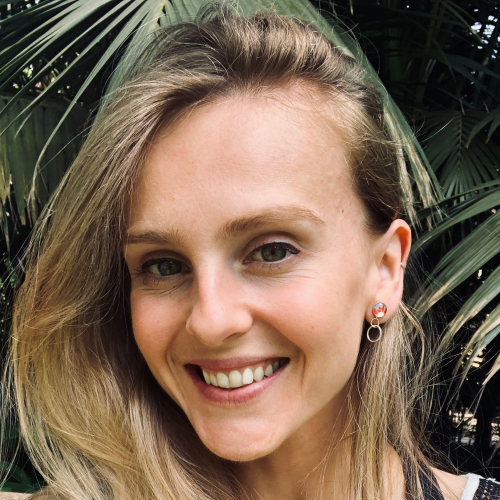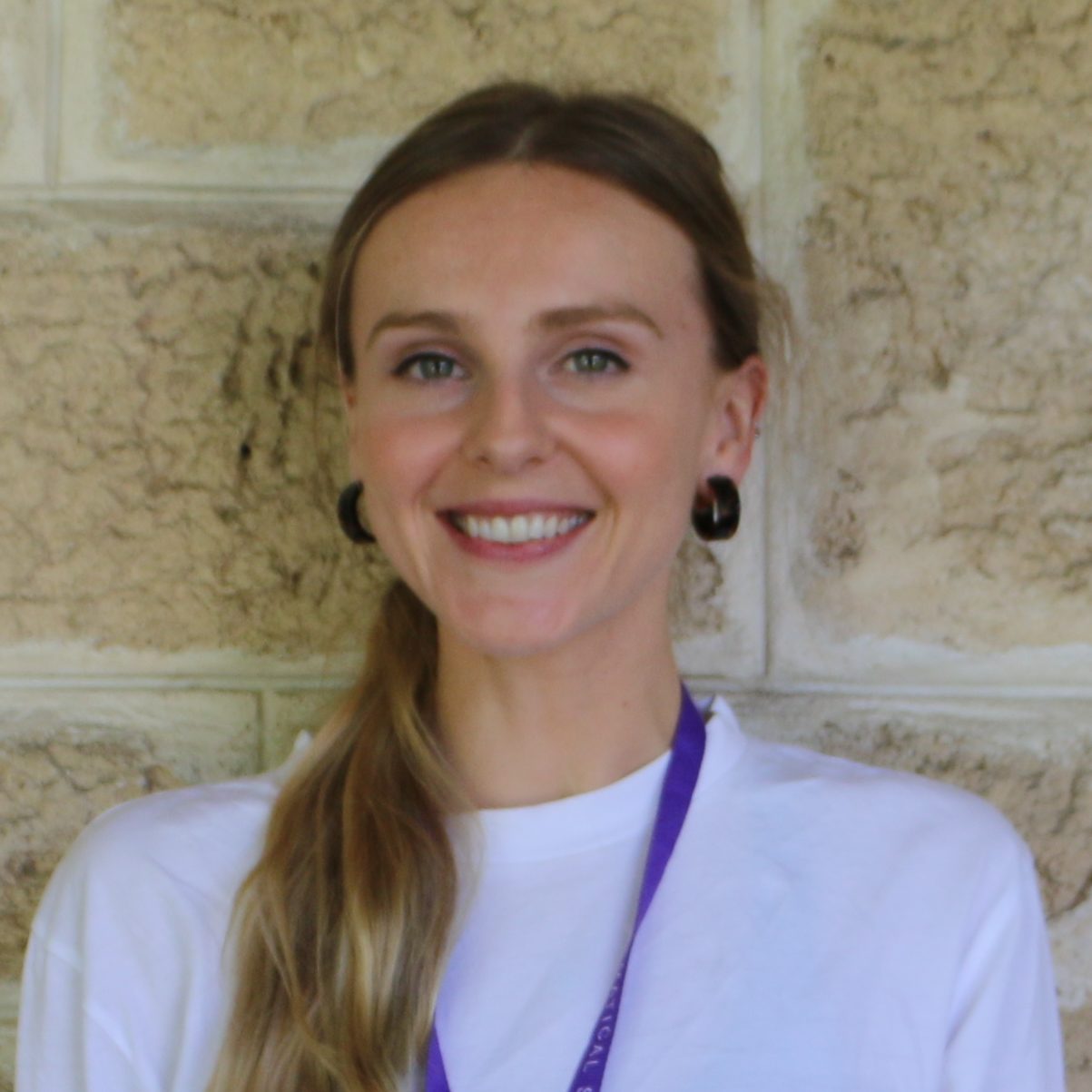
Lucinda Ham
The University of Melbourne
I am a postdoctoral researcher in Theoretical Systems Biology at the University of Melbourne. I completed a Bachelor of Science (Honours) with a major in mathematics and statistics at La Trobe University, graduating with the highest overall performance in the Faculty of Science, Technology and Engineering. Following this, I obtained a PhD in pure mathematics in 2017. Here my contributions lie at the intersection of logic, universal algebra and theoretical computer science. On completion, I was intrigued about taking my mathematical skills in a more applied direction. After a brief foray in architecture, I considered a range of related applied fields, before eventually settling in the area of theoretical systems biology. Now I investigate mathematical and statistical approaches in understanding cell biology. Outside of research, I enjoy yoga, drawing, as well as outdoor activities such as climbing, running, cycling, kayaking and swimming.
Can you give me a quick overview of the type of mathematics you are studying and its potential impacts for the broader community
My area of research relates to the mathematics underlying biological systems, with a particular focus on modelling stochastic processes. In some of my most recent work for example, I have derived a mathematical model for the gene regulation process.
The development of mathematical, statistical and computational tools in cell biology enables us to better understand and explain complex biological processes, as well as their evolution. An increased understanding of these processes at a fundamental level has the potential to enhance medical and biological research, and subsequently address problems relating to disease. As an example, mathematical and computational approaches have been used to lay the foundations of personalised medicine, and in informing therapeutic decisions.
You attended AMSI BioInfoSummer, what drew you to this event? What was the most valuable part of AMSI BioInfoSummer for you in terms of furthering your career in mathematical sciences?
I was drawn to BioInfoSummer having only recently started as a postdoctoral researcher in theoretical systems biology. In fact, this is a significant change in career direction for me: my PhD is in pure mathematics, and I have only a limited background in biology and programming. Participating in the BioInfoSummer has assisted enormously in the transition from pure mathematical research to research in systems biology and statistical bioinformatics. In particular, from the various talks I have gained a much deeper understanding of the biological mechanisms and processes underlying my research. Additionally, the workshops in R were a friendly introduction to programming basics, providing a strong base from which to build these necessary skills.
Did this event lead to any new projects, collaborations? What were some outcomes in terms of your work?
I met numerous other students and early career researchers, but the biggest impact for me was helping cement the various notions that I was learning. As I am transitioning to mathematical and computational biology from pure mathematics, I relished the opportunity to see statistics and mathematical ideas discussed and explained in a new context.
Furthermore, BioInfoSummer hosted some eminent specialist speakers, which provided the opportunity to be exposed to current research and new ideas in the field. I was able to learn about research methodologies in area, as well as learn of where advances are needed. This will significantly inform my own research and will be enormously beneficial to its progression.
You received a CHOOSEMATHS Grant to assist your attendance at AMSI BioInfoSummer. How important was this in terms of your ability to attend and fully participate in the sessions throughout the week? How did you hear about the grant?
I learnt of the BioInfoSummer event from mailings through various email lists and saw the CHOOSEMATHS grant there. At the time of registration, I was working only casually as a demonstrator at La Trobe University, and would not have been able to attend the AMSI BioInfoSummer had it not been for the financial support of the CHOOSEMATHS grant.
How important are initiatives such as the CHOOSEMATHS Grants in terms of fostering the participation and achievement of women in mathematics, particularly in terms of access to networking opportunities and further training opportunities?
Initiatives such as CHOOSEMATHS Grants are unquestionably important in fostering the participation of women in mathematics and is a step towards correcting the under representation of women in the STEM fields. In particular, the opportunity to network with other women and to discuss issues unique to women in the area creates a sense of unity and this is empowering. Moreover, being able to connect with female role models in STEM, not only inspires other women to pursue these areas, but also encourages the retention of women already in the area.
I see these initiatives as extremely important to encourage female scientists to explore opportunities and continue their career development.
In what ways has the experience impacted your maths studies? Has it influenced the direction of your research?
BioInfoSummer has helped me develop a far deeper understanding of the various challenges and complexities in cell biology and genetics, which has already helped me refocus my efforts in theoretical systems biology. My understanding of the fundamental workings of gene transcription opened my mind to expanding models I was considering, which quickly lead to improvements to work I was involved in. I’ve also learnt many statistical ideas that I would use when explaining basic mathematics and statistics to students.
The CHOOSEMATHS Grants are part of a broader program being delivered by AMSI Schools with support from the BHP Foundation to turn the tide on Australia’s maths deficit and strengthen maths education and participation of women across the discipline. What do you see as the big challenges facing maths in Australia, particularly for women?
The challenges facing women in the mathematical sciences are subtle and complex. From my own perspective, an overall lack of senior female role models in academia stands out as a major deficiency. The effect of this is more implicit than direct, but real nevertheless. Change on this front is inevitably slow and difficult to enact, but the kind of programmes and support currently being supported by AMSI are a very important step.
Did you always want to pursue a career in maths? Were you encouraged to study these subjects at school?
My father has an engineering background, and has always strongly encouraged mathematical thinking and problem solving. Initially, I also was interested in an engineering direction, but this was as much the influence of high school advisors, for whom the idea of studying mathematics or statistics itself was not a direction.
My undergraduate study at La Trobe University stands out as having the biggest impact on me taking a clearer mathematical and statistical direction: inspirational lecturers such as Professor Brian Davey were hugely influential, and more generally, the environment at La Trobe was incredibly supportive, along with a superb approach to teaching mathematics and statistics.
Where do you see yourself in five or ten years time?
I am passionate about mathematics and contributing to the scientific knowledge base. In five or ten years’ time, I hope to be making advances in my field that impact positively on biological research.
Did you learn about new career options available to you that you were not aware of prior to attending AMSI BioInfoSummer?
Having recently searched for work in the area (now in a postdoc), I feel I already had a good understanding of career options in the broader areas surrounding Bioinformatics. Nevertheless, the BioInfoSummer information sessions and general exposure of different directions and facets is a great service.
If a peer asked you if they should attend AMSI BioInfoSummer, how would you describe the conference to them?
BioInfoSummer is a unique opportunity to get exposure to research and ideas in bioinformatics and computational biology at a range of levels. There are talks by specialists, hands-on workshops offered at both introductory and more experienced levels, and lots of opportunities for socialising and getting to know both fellow students and researchers, as well as experts in the field.
Any other feedback/comments you would like to provide on the CHOOSEMATHS grant or AMSI BioInfoSummer?
BioInfoSummer is a fantastic event! I would strongly encourage anyone who is involved in the mathematical sciences to attend. I would also like to express my gratitude in receiving a CHOOSEMATHS grant, as it would not have been possible to attend BioInfoSummer without the support.

